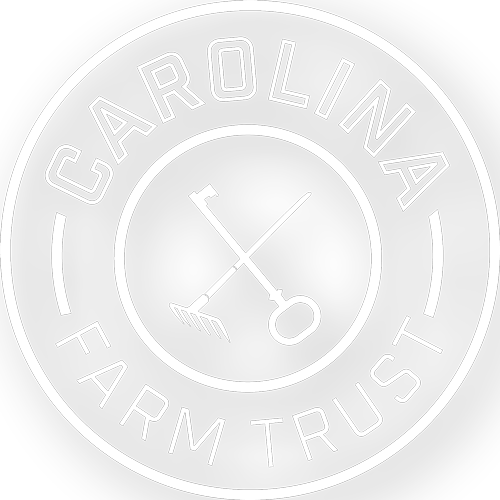Agriculture has long been seen as a male-dominated industry, but that’s changing—fast. Today, women are not just participating in agriculture; they are leading it, innovating within it, and transforming it to meet the needs of their communities. From small urban plots to large regenerative farms, women are growing food, growing businesses, and growing power.
At Carolina Farm Trust (CFT), we see this shift as a vital part of building a more just, sustainable, and inclusive food system. Our work is rooted in uplifting historically underrepresented communities in agriculture—and that includes women.
The Rise of Women Farmers
According to the 2017 USDA Census of Agriculture, women now account for 36% of all U.S. farmers. More and more women are now involved in making decisions about land use, crop and livestock production, and business operations. This is not a trend—it’s a transformation.
Women are also more likely to embrace sustainable and community-centered practices. Studies show they are more likely to diversify their operations, focus on food access, and grow crops for local markets rather than for industrial supply chains. In other words, women farmers often embody the exact values that food system reform efforts are calling for: equity, resilience, and rootedness.
Yet, despite their growing numbers and influence, women still face significant structural barriers to land access, credit, equipment, and technical assistance.
The Gender Gap in Agriculture
Women in agriculture frequently operate on smaller plots of land, receive less government support, and are less likely to be recognized as primary operators compared to their male counterparts. They often juggle farm duties alongside caregiving responsibilities and face gender bias in everything from loan applications to equipment sales.
Access to land remains one of the greatest challenges. While women own or co-own a substantial amount of farmland in the U.S., they often don’t have full decision-making control or face barriers in leasing or purchasing land.
These barriers are even more pronounced for women of color. Black, Latinx, and Indigenous women face compounded challenges due to the intersections of racism and sexism in our food systems and policies.
Carolina Farm Trust’s Commitment to Equity
Carolina Farm Trust works to eliminate these barriers and support women farmers and food leaders in tangible ways. Our holistic approach to food system change is grounded in equity—from who grows the food to who distributes, prepares, and benefits from it.
Here’s how we’re doing it:
1. Urban Farm Network
Our Urban Farm Network includes spaces like the Urban Farm at Aldersgate and Free Spirit Farm, where women have been instrumental in shaping the vision and operations. These sites don’t just grow food—they grow leadership and opportunity. Women lead farm education programs, community events, and food access initiatives in neighborhoods historically excluded from agricultural investment.
2. Farm Apprenticeship Program
This initiative trains aspiring farmers, including a growing number of women, to gain hands-on experience in sustainable farming. From learning soil health to running farm-based businesses, the program is a pipeline for leadership. Our apprentices learn not just how to farm—but how to shape the food system.
3. CFT Market & Food Entrepreneurship
Our commercial kitchen and distribution hub give women food entrepreneurs the infrastructure to grow their businesses. From chefs to bakers to value-added product makers, CFT Market is helping women take local food to the next level, with fair access to retail, wholesale, and catering channels.
4. Events and Storytelling
Through programs like Chef’s Table Dinners, food and floral pop-ups, and our storytelling campaigns, we spotlight the diverse women behind the food. These platforms elevate women’s voices and demonstrate how food can be a tool of both nourishment and narrative power.
Centering Women in Food Justice
When we talk about food justice, we must talk about gender justice. Women’s access to farming opportunities, economic security, and leadership positions in the food system is fundamental to transforming how we grow and share food.
Women often lead with care and community at the center—and that’s the kind of leadership our food system desperately needs. When women are empowered in agriculture, entire communities benefit. Studies have shown that women farmers are more likely to reinvest earnings into their families and local economies, fueling broader cycles of resilience and regeneration.
Looking Ahead
The future of food is diverse—and it is female. But we cannot rely on statistics alone to drive change. It takes infrastructure, mentorship, investment, and policy shifts to ensure that women in agriculture are supported, celebrated, and sustained.
At Carolina Farm Trust, we are proud to stand alongside women farmers and food leaders as they change the face of farming, one acre at a time.
Help Us Uplift Women in Agriculture
Whether it’s access to land, funding, training, or visibility, women in agriculture need support to continue their vital work. By donating to Carolina Farm Trust, you are investing in a future where equity grows alongside food.


